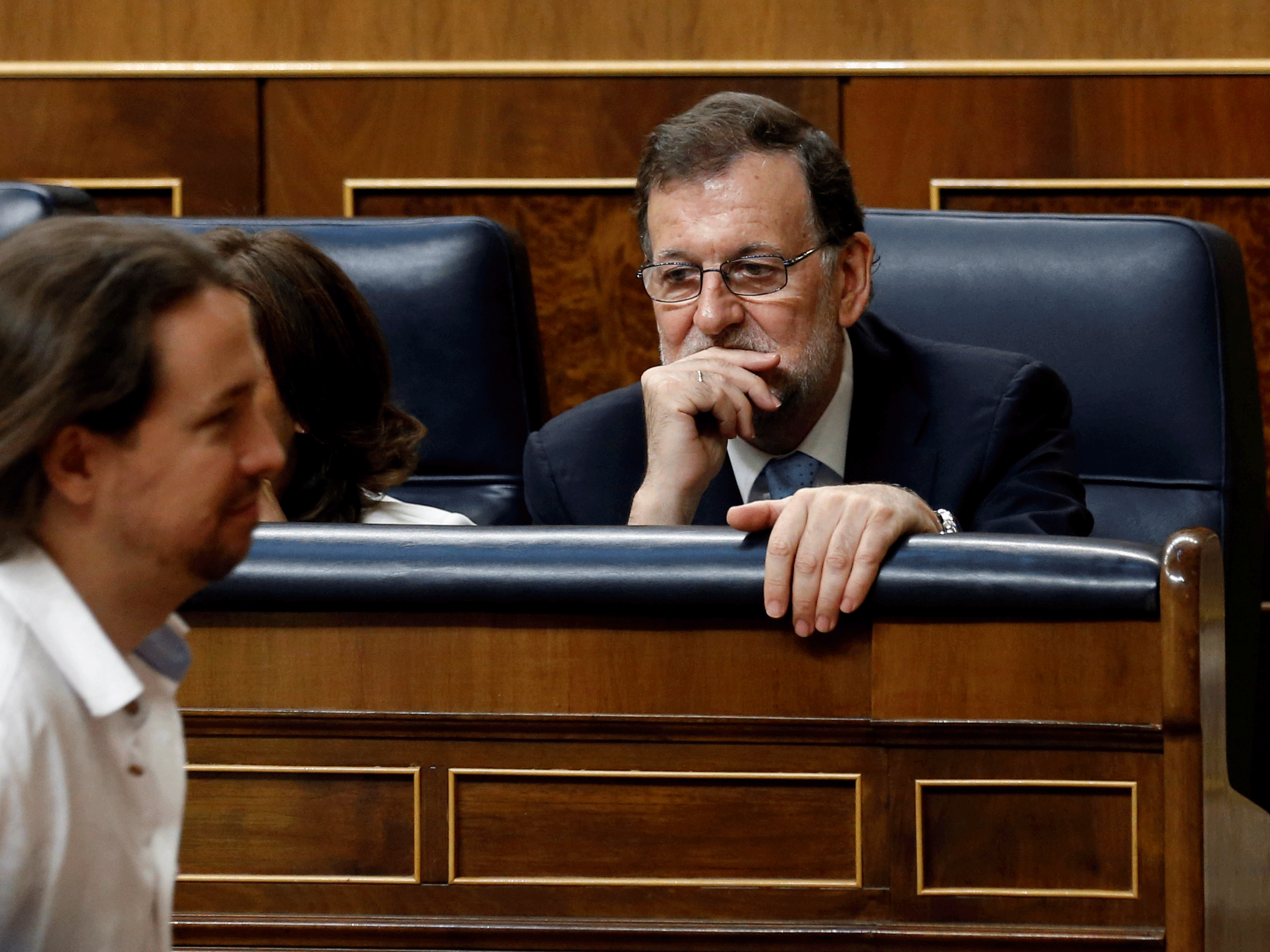King of Spain tells acting Prime Minister to form government despite post-election deadlock
'Spain needs a government now', the acting Prime Minister has said

Your support helps us to tell the story
From reproductive rights to climate change to Big Tech, The Independent is on the ground when the story is developing. Whether it's investigating the financials of Elon Musk's pro-Trump PAC or producing our latest documentary, 'The A Word', which shines a light on the American women fighting for reproductive rights, we know how important it is to parse out the facts from the messaging.
At such a critical moment in US history, we need reporters on the ground. Your donation allows us to keep sending journalists to speak to both sides of the story.
The Independent is trusted by Americans across the entire political spectrum. And unlike many other quality news outlets, we choose not to lock Americans out of our reporting and analysis with paywalls. We believe quality journalism should be available to everyone, paid for by those who can afford it.
Your support makes all the difference.The King of Spain has asked his country's acting Prime Minister to form a government despite two sets of elections that have resulted in hung parliaments and no overall majority.
Mariano Rajoy, head of the conservative People's Party (PP), warned he could fail to meet King Felipe VI's request to rally MPs from other parties around him - and said he would run a minority government if not.
Most members of parties have already declined to support a conservative-led government in talks with the King earlier this week, leaving the PP with just 137 votes in parliament when 176 are needed to secure a majority.
"Spain needs a government now, this government should be headed by the PP and there is no alternative to this," Mr Rajoy told a news conference after meeting with King Felipe.
"I will try to form this government but not everything depends on me."
Four rounds of consultations with the King between the parties have already ended in stalemate following national elections in December and June which both resulted in hung parliaments.
It is hoped an EU deadline to pass a budget by October next year will speed up a solution to the deadlock, insiders have said.
But the Socialists and Unidos Podemos ("Together We Can"), the two left-leaning parties sat in second place, recently emphasised that they intend to oppose Mr Rajoy.
Ciudadanos ("Citizens"), the country's liberal party which came fourth in the June 26 election, has said it would abstain in a confidence vote.
"We want to change Rajoy's government and this is why we will vote 'no' in a confidence vote," said Pedro Sanchez, leader of the Socialists.
Without backing or at least an abstention from the Socialists, Mr Rajoy will be unable to secure a majority for a second term in office.
Since the PP was the only one of the four main parties to win more seats in June than in December, Mr Rajoy has said that if he failed to win a stable majority, he would seek to run a minority government.
Such a measure would require all other parties to abstain from a confidence vote, and then each of the country's new laws, such as next year's budget, would have to be negotiated on a case-by-case basis.
"This period should not drag on in such a way that we would not be able to fulfil our European commitments, such as the spending limit, the deficit target and the budget," Mr Rajoy said.
"Before mid-October, this should be sent to Europe,"
Additional reporting by Reuters
Join our commenting forum
Join thought-provoking conversations, follow other Independent readers and see their replies
Comments